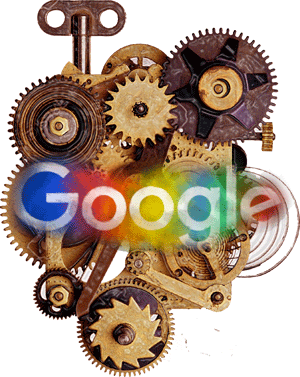Frankly, a lot of nonsense is talked about Search Engine Optimisation (or SEO), and there are companies commanding huge fees for providing this mysterious service.
But don’t be fooled!
Search Engine Optimisation simply means designing the site so that it ranks well in Google and other search engines. This is not hard to do.

I incorporate Search Engine Optimisation in the original site design, right from the beginning. Within 2 weeks from launch, most sites I design show up on the first page of Google, when the appropriate search words are used.
Yet it seems that every day there is a new hint or tip about ranking well in Google. Most are nonsense.
I have a simple rule of thumb when it comes to learning new Search Engine Optimisation strategies – if I hear it on the grapevine I take it with a hefty pinch of salt, but if I hear it from Google I take it as gospel.
Adding keywords is important, but we do need to be a bit careful.
Most major search engines, and certainly Google, do not spider or index the keyword meta tags anymore. For those that do, if the keyword is not also in the copy of the same page, it’s considered spam.
BE CAREFUL
this could lower your rankings,
not raise it.
Ideally, the Title Tag should contain fewer than 100 characters while the Keyword and Description tags should contain fewer than 256 characters each. Most search engines will only consider data within these character ranges when indexing a web page.
The reality of all the promotion of Search Engine Optimisation is that if your site contains the content people are looking for, the search engines will find it.
However, if you add too many keywords, or add keywords that are not relevant to the page content, there is the added danger that Google will consider it “keyword spamming” and not index your site at all.
Back in the late 90s, web site developers used to try and fool the search engines. This was especially true of porn sites. Remember how you would type in a query like “death of princess diana” and then have to scroll through pages of porn links before finding the relevant sites you were really looking for?
This happened because the porn sites wanted to increase their search engine rankings, so they added keywords based on the current event topics they knew people were searching for. It rendered the search engines almost useless and, unless you were a really adept searcher, very frustrating.
It was out of this era of search engine manipulation and user frustration that Google was born.
It is because Google delivers the results the user want, that Google remains the king.
Today Google is really the only search engine worth worrying about.
It is used by more than 99% of people and if your site ranks well in Google, it will rank well elsewhere too.
For this reason, I develop sites using Google Webmaster Tools and follow their recommendations. Google explain how they rank sites in searches here.
I include this Search Engine Optimisation service in my basic website development fee. After all, it is (or should be) a basic part of web design and is just as important as the coding or the graphics.
